Egon Cossou on Being a Family Carer and BBC presenter
Tags
Care at homeInterviews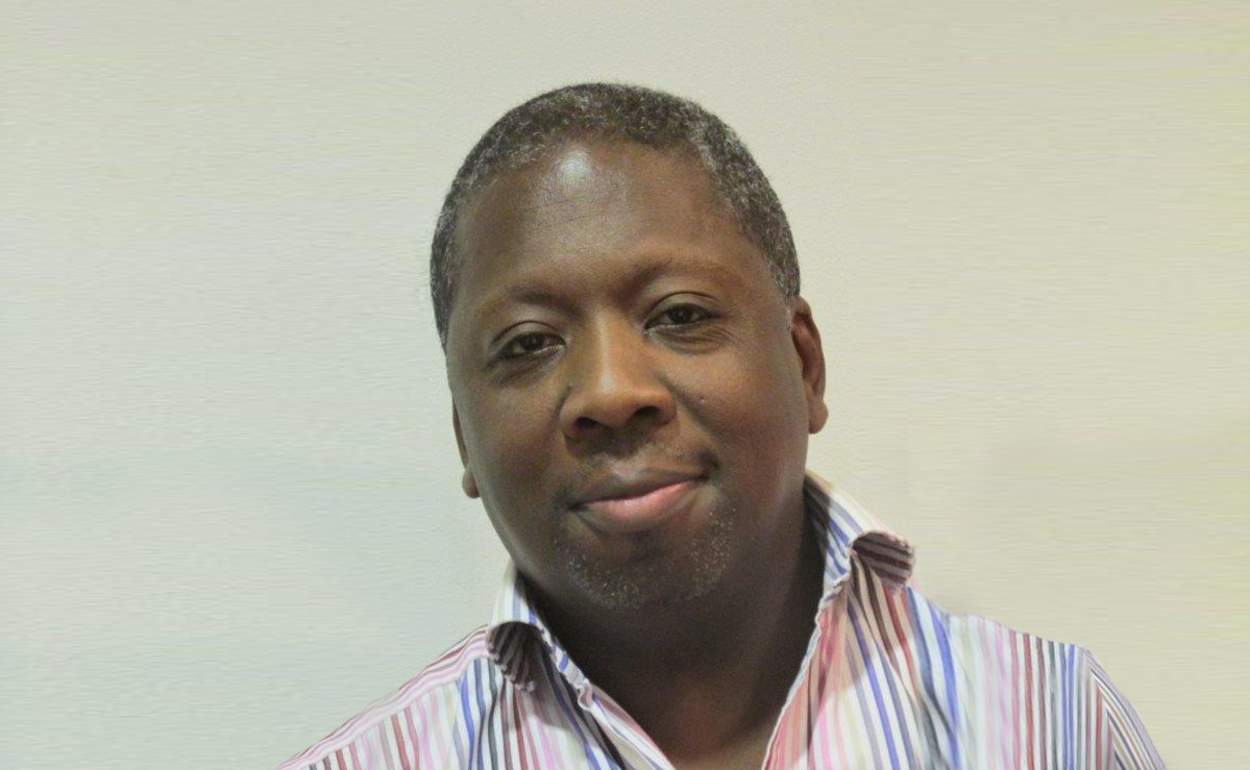
Producer and presenter Egon Cossou combines a busy job at the BBC with caring for his mother, who is blind, at her home in Edmonton in north London.
We talked to him about the joys of reconnecting with cherished parents in later life, the difficulties of combining the needs of two different lives and why the word carer is one he baulks at.
What are the biggest challenges and opportunities of caring for a loved one?
You don’t like to think of yourself as a carer because these are people you love and who have brought you up. An enabler is a better word, because a lot of it has to do with enabling people to live their best lives as they get older.
As a carer – or enabler – you feel that you need to be present, and not just for caring. This is not an experience that is purely about medical appointments or decline, it’s also about deepening the relationship with these people who, like the stars and moon, have always been there in your life.
I think you can lapse into taking your parents for granted as they get older but don’t make that mistake. Just dive in and spend time with them – because you can uncover some amazing personal stories and clues as to who you are.
Talking to my parents about their youth it seemed there was always this sense of adventure and discovery for them. There was always a party. Life was not easy as they didn’t have a lot of money, but there was always time for friends and finding out about the latest thing. Every day you learn something new about the person you are or about the loved one you’re spending time with.
What are the challenges of combining care with a career?
I work for the BBC in the business and economics unit and it’s a job with quite a lot of pressure. When my My father died in 2019 died I moved back in to be with my mother who’s blind.
If you’re trying to balance an active personal life and a career with caring, there can be moments where you eventually drop one of the many balls you’re juggling. I eventually applied to work part-time and thankfully the BBC was able to accommodate that.
I’m aware though that not everybody is as fortunate in that respect – and, again, I’ve been lucky that both my parents were both entertaining, funny, basically selfless people. They’re not going to be sitting around making demands. In fact, if there’s any sort of battle it’s been around them accepting help and I have had to learn how to navigate that.
"You don’t like to think of yourself as a carer because these are people you love … an enabler is a better word because a lot of it has to do with enabling people to live their best lives as they get older."
Egon Cossou
I work three days a week now and losing two fifths of my income has been hard. I’ve been able to do overtime so there’s flexibility there – but there was a time when I was doing quite a lot of overtime, and it just felt as if I wasn’t keeping on top of issues like chasing medical appointments or taking my parents out on nice trips.
Working part-time is not easy but I don’t think I would feel comfortable with anything else at this point. I feel so strongly that I need to be there to advocate on my mother’s behalf – to say to the GP I don’t think this medication is working or ask what’s happening with appointments.
How do you make sure your mother can stay independent in her own home?
My sister lives in Florida, so I am “the boots on the ground” here. My mother has carers who come in two or three times a day, and again, this is where I baulk at the description of care, because I feel like I am not doing an awful lot.
I sort out arrangements with the care agency or with the doctors and I cook the occasional meal, but I am not doing personal care. Instead, I’m doing things like saying, “It’s a beautiful day. Let’s go out” and adding value there.
My mother is very concerned though that I should be spending more time at my own home, and says to me,” You’ve got to reclaim your life”. But I wouldn’t feel comfortable sitting around my house in Peckham watching Netflix and knowing that she was at home alone.
Do you think there’s enough support for unpaid carers, like yourself?
I think as a society, we do not understand what is coming our way. There’s going to be a tsunami of people in my position in the future. People are living longer and getting older, both those who are being cared for and those who are doing the caring.
A lot of the focus in society is about how we raise our children, but what we haven’t quite understood yet is that at the other end of things there’s another growing phenomenon of care.
"[My parents] are not going to be sitting around making demands. In fact, that if there’s any sort of battle it’s around them accepting help and I have had to learn how to navigate that.'
Egon Cossou
We have to appreciate and support the needs of people who are looking after elderly or disabled loved ones. As a society I don’t think we’re particularly callous. It’s just that we haven’t got it yet – and the focus is so much on the other end of the generation scale.
What advice would you give to somebody starting to care for a loved one?
Firstly, understand that you are doing this out of love. Secondly, do not forget about yourself. As the details of the care that you’re providing begin to pile up it’s quite easy to forget about your own needs, dreams and desires.
You have to recognise you are a person as well, because if you collapse then they collapse too. Do not underestimate the power of the word “no” either – there will definitely be times when you’ve just got to breathe and reconnect with yourself.
Read our latest interviews
Browse our latest interviews, and research on elderly living, from leading national experts.
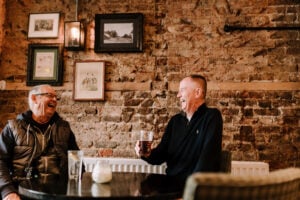
How ageist is our society? – Interview with the Centre for Ageing Better
Ahead of their Action Day on the 20th March, we spoke to the Centre for Ageing Better about their pioneering ‘Age Without Limits’ campaign which is encouraging everyone to take a stand against ageism.
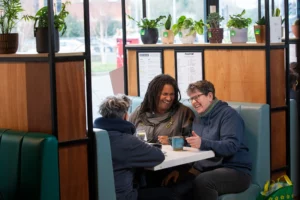
The unsung heroes – support for the growing number of unpaid carers
Here we talk to Giles Meyer about how early intervention is a crucial way to ensure that carers get the help they need to keep healthy.

More than just a pet – Interview with Give a Dog a Bone Founder Louise Russell
Back to News page > There are over 1 million lonely older people living in the UK.And, each year around 250,000 animals enter rescue centres. Give a Dog a Bone…and
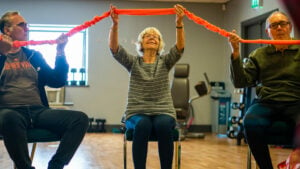
Neurodiversity and ageing – What do we know?
In this guest think piece Professor Amanda Kirby discusses how far we’ve come in understanding neurodiversity in later life, and how far we still have to go.
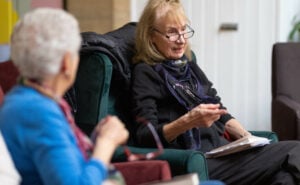
Struggling to talk about care? Elder’s latest survey finds you’re not alone.
Back to News page > Quick overview A recent survey from Elder – a leading live-in care marketplace, found just 27 percent of older people who either need care now,

How can caregivers overcome sleep problems?
We asked Channel 4 sleep expert Stephanie Romiszewski about the impact of poor sleep, and how caregivers can break unhealthy sleep cycles.